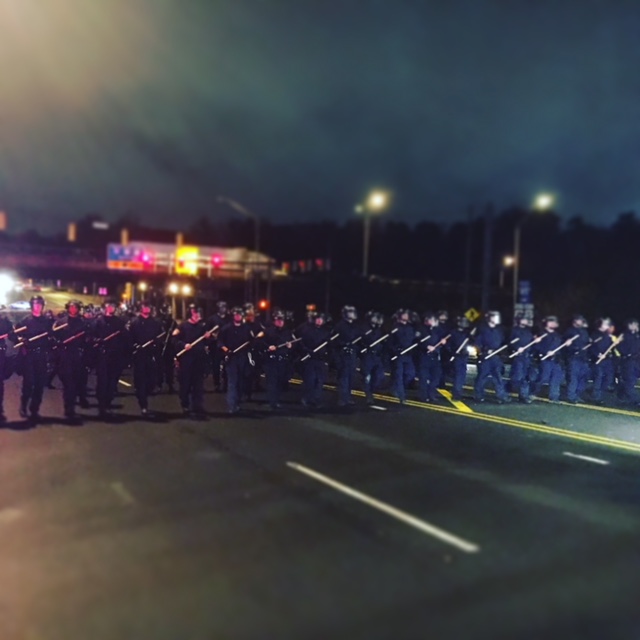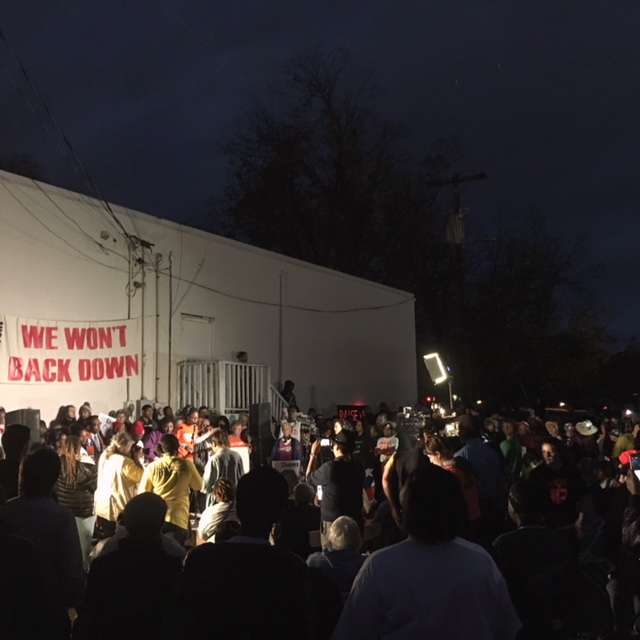For the past several weeks, the passages have focused us on specific people, characters in the story of the Bible, individuals in leadership roles in Israel—people like Samuel and David and Elijah, and we heard their stories as ways to think about our own lives.
There’s a shift that happens today. For the next month we will spend with the prophetic words of Amos, Isaiah, Jeremiah, Daniel, and Ezekiel—the prophetic books of the Bible, written by schools of prophets, people inspired by God to speak the Spirit’s word of judgment and hope: words of judgment against the people of God in order to call them into justice, for them to change their lives, to change their cultures, their politics, their economics, for them to renew their commitments to God’s mercy and justice, for them to signs of hope to their neighbors.
When we’ve talked about Moses and Samuel, David and Elijah, over the past couple months, their lives becomes mirrors to our own, exposing our souls, our desires. The prophets take us beyond what’s going on in our hearts and minds, beyond our personal sins and hopes.
Here’s one way to think about the difference: it’s as if we’ve spent the past couple months taking selfies, standing with our cameras at an arms-length from us, to see get a good picture of ourselves, a close-up.
But now, with the prophets, they take a wide-angle picture of us, from miles away, from an airplane or a satellite, so we can see how ourselves in a large-scale context, to see our communal lives, our communities, to see beyond our households, beyond our neighborhoods—to see the portrait of our lives in a political landscape, to see what we look like on an economic map, to contemplate the policies that govern the lives of our county and state and country and globe. The prophets take a picture of us from the moon.
Amos sees a people who are dependant on injustice, a nation that has grown comfortable with economic disparity, with policies that take advantage of workers, with a culture that exploits the poor. “Thus says the Lord,” Amos prophesies in chapter 2, “they sell the righteous for silver, and the needy for a pair of sandals—they trample the head of the poor into the dust of the earth, and push the afflicted out of the way.”
In verse after verse, chapter after chapter, Amos decries the people for their heartless lives, their cold-heartedness—the way they ignore how their economy affects the poor. The poor are trampled into the dust, and the oppressed are shoved out of sight, out of mind, so the middle-class Israelites can spend their summers at resort communities without guilt and the upper-classes can vacation on their private islands without having to see homeless beggars around.
In response, the Lord roars in judgment, saying, “I will tear down the winter houses as well as the summer houses; and the houses of ivory shall perish, and the great houses shall come to an end” (3:15). The disparity between the wealthy and the poor is a reoccurring theme for Amos. “You trample on the poor,” he prophecies again in chapter 5, “and take from them taxes of grain.”
Last month I went with a woman to her court appearance. She was someone who, this past summer, was bailed out of jail through local fundraising efforts. The way our justice system is set up, you have to sit in jail even though you haven’t been convicted of a crime. You aren’t innocent until proven guilty. You get punished with prison time if you can’t afford your bail, like this woman I was with at court, who sat in jail for months because she couldn’t pay $1,500 to get out. We spent the morning at court, and it didn’t go very well, mostly because she has an intellectual disability, and she suffers from an addiction, and she doesn’t have nice clothes, nor does she have the money to afford an experienced attorney to represent her.
But here’s the point of my story. Afterwards, I asked if she needed a ride, and she said yes, to drop her off at McDonalds […] to spend the few dollars that she had.
Recently I learned that McDonalds is one of the hottest stocks on the market—up 70 percent since February. The smart people with money have been buying McDonald’s stocks all year, and making lots of money, cashing in on people like the woman I dropped off after her day in court, making money off of a replaceable workforce.
McDonalds employees make around $9 per hour and they have a 150% turn over rate. That’s how a company becomes successful in our economy—by offering lousy salaries and giving no incentive for workers to stay. And, in response, God roars verse after verse like this one: “You trample on the poor and take from them taxes of grain.”
Earlier this year I was at a rally where we heard testimony after testimony of fast-food workers, talking about what it’s like to try to make a life for themselves and their families, working day shifts and night shifts, piecing together work beyond their hours at McDonalds and Burger King and Wendys. They were asking for a raise in the minimum wage. After they finished making their case to the crowds, they took to the streets, blocking traffic on Roxboro, in front of McDonalds. The police soon showed up, dressed in riot gear, as they do these days—militarized cops, looking like they were prepared for urban warfare.

The fast-food workers sat in the middle of the road, locking arms, singing and chanting. One by one they were arrested, their wrists bound together with zip ties, as the police loaded them on a prison bus, to take them all away.
“Alas for those who lie on beds of ivory, and lounge on their couches,” God says in Amos. “Alas for those who sing idle songs to the sound of the harp, who drink wine from bowls, and anoint themselves with the finest oils” (6:4-6).
Here’s the thing I learned from Amos this week, after reading through his prophecy. There’s so little concern with all the things I’ve obsessed about, as a Christian, for most of my life. God doesn’t waste time with the stuff I’ve always thought about as so important for my life, for my faith—all my conceptions about faithfulness, about what it means to love God, to live according to God’s will.
Instead, the defining mark of faithful people is economics—and not just what we do with our private bank accounts, but how money works, and doesn’t work, for the poor. God’s singular focus, in Amos, is the way economies are set up to benefit some at the cost of real lives, the labor of the working class. That’s what God roars about in Amos—about restructuring the economy, overturning the stock markets, remaking labor policy. God is angry at a system that thrives by pressing down on people. God is angry at a way of life that tramples the poor.
An economy that tramples people. That verb is mentioned at least three times in Amos—to trample. Here it is in chapter 8:
Hear this, you who trample on the needy, and bring to ruin the poor of the land…, who practice deceit with false balances, buying the poor for silver and the needy for a pair of sandals.
To be faithful people, according to Amos, means nothing less than changing the economy, which involves restructuring the world. And I have no idea how to do that. And I don’t think Amos knows how to do that either. There’s no roadmap for revolution in those pages. I tried to find one.
What we do find in Amos is a direction for our lives—an invitation to give ourselves to undoing the evils of our economy, the injustice of our labor practices, the cruelty of our tax policies.
There are no clean hands in Amos. Everyone is culpable. “I shall strike the capitals until the thresholds shake,” God says in chapter 9, “no one shall flee away, not one of them shall escape.”
There’s a temptation here. It’s a religious temptation. The temptation of piety. To point to our disciplined life as proof that we absolved. We use our faith to let ourselves off the hook, to reassure ourselves that we are ok, since we’ve got our personal lives sorted out, with our piety and our devotions and our ethics.
There are harsh words in Amos for people who use their faith, people who use religion, to absolve themselves from the sins of the nation. “I hate, I despise your festivals,” God says in chapter 5. “Even though you offer me your burnt offerings, I will not look upon them. Take away the noise of your song; I will not listen.”
This is a word of judgment, from Amos, from God—But it’s a word of judgment rooted in hope, the hope for a different world, a world that is not as harmful as this one, a world that offers life not death, mercy not oppression.
To be God’s people is to be devoted to what God cares about—“to let justice roll down like waters, and righteousness like an ever-flowing stream.” The Christian life is this: To let our lives get caught up in that river, a flood of justice, washing away all that tramples the needy, a deluge leveling all things, where no one will have too much so that everyone may have enough—waters of righteousness, refreshing our world.

